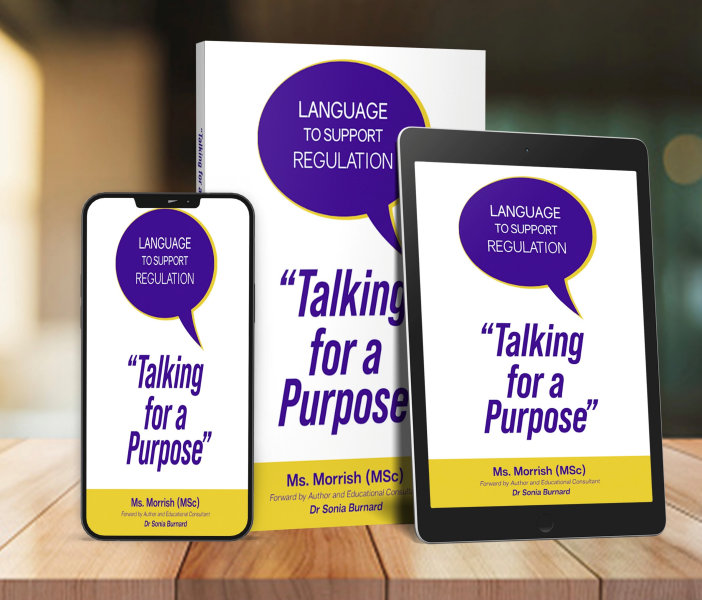
This book offers a much needed shift within the realm of classroom management. The focus is often upon the behaviour of children, and the adults' behaviour is not always examined.
“Talking for a Purpose” increases accountability. It is ‘adult self-management focused’ in that all educators have to manage their behaviour, language and responses, before addressing any behaviour challenges displayed by a child.
This book takes the reader through each sub-section utilising classroom-based examples and scenarios with reflective activities. Readers will be able to implement a consistent language-based approach which empowers the reader to make regulated behaviour decisions when facing a range of classroom challenges.
We have implemented “Talking for a Purpose” within our school for the past nine years. Due to the consistency of the adult’s language, “Talking for a Purpose” provides time and recognition that creates a platform for the development of positive relationships between ALL adults and ALL children.
Talking for a Purpose allowed me to feel more in control of any behaviour situation. I felt a huge increase in my confidence as a teacher. All aspects of “Talking for a Purpose” has helped me to flourish as a teacher.
Ms Morrish is THE most influential person I have met on my teaching journey, hands down. Wonderful to have her in the education industry.
The impact that “Talking for a Purpose” has had within our school is remarkable. Teaching staff are now much more confident when faced with behaviour challenges as they not only now know what to say but how to say it.
“Talking for a Purpose” has empowered our staff to take 'back control'. This has resulted in significant improvements in children's behaviour that is commented upon by everyone that now visits our school.”
“Talking for a Purpose” allowed me to feel more in control of any behaviour situation. I felt a huge increase in my confidence as a teacher. All aspects of “Talking for a Purpose” has helped me to flourish as a teacher.